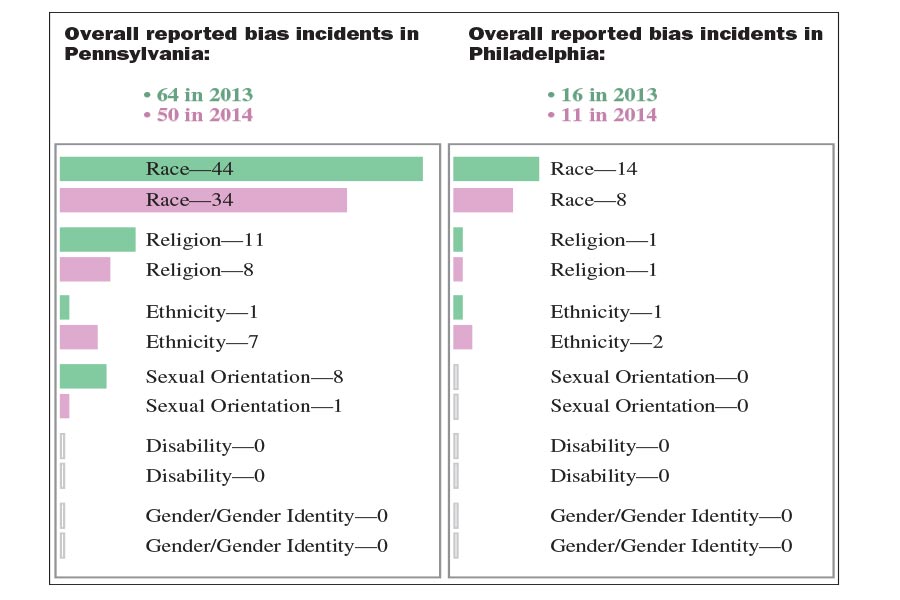Philadelphia police say there’s no need for them to receive additional training in identifying and reporting anti-LGBT hate crimes.
“There isn’t any deficiency in our reporting of hate crimes,” said police spokesperson Lt. John Stanford last week.
Under state law, Philadelphia police are required to report all hate crimes in the city to the Pennsylvania State Police.
But concerns that Philadelphia police under-report anti-LGBT hate crimes resurfaced last month, when they said Kiesha Jenkins’ homicide isn’t a hate crime.
The trans woman was brutally beaten — then shot twice in her back — by a group of men in the Hunting Park section.
Police ruled out the possibility that Jenkins was targeted due to her gender identity, claiming the sole motivation was robbery.
But some LGBT advocates say police acted prematurely, since Jenkins’ shooter hasn’t been arrested yet.
Moreover, police didn’t report the Sept. 11, 2014, attack on a gay couple as a hate crime — though it was widely perceived to be one.
Nor did police report as a hate crime the grisly stabbing death of trans woman Diamond Williams, yet her killer, Charles Sargent, filed an “affidavit of truth” indicating an intense disapproval of trans people.
In 2013 and 2014, Philadelphia police didn’t report any hate crimes based on sexual orientation or gender identity. So far this year, Philadelphia police have reported two hate crimes based on sexual orientation and one hate crime based on gender identity.
Stanford said Philadelphia police report all hate crimes prosecuted as such by the Philadelphia District Attorney’s Office.
He also said police receive ongoing training in a variety of areas, and if new laws concerning hate crimes are enacted, additional training would be welcomed.
State police spokesperson Trooper Adam Reed was asked if it’s necessary for Philadelphia police to receive additional hate-crimes training.
“We do not hold a position [on that issue],” Reed said in an email. “The Philadelphia Police Department would have to make that determination.”
Reed added: “We would be happy to provide additional training and information on uniform-crime reporting to the Philadelphia Police Department, if they felt it necessary.”
The Pennsylvania State Police doesn’t have an LGBT advisory panel, but it has a strong equal-employment opportunity unit, Reed added.
“The Pennsylvania State Police is committed to increasing the employment and advancement opportunities of traditionally marginalized groups that are underutilized as compared to their relevant labor force levels,” Reed said. “Additionally, the department is committed to creating a work force that reflects the commonwealth’s diversity. This is facilitated through the EEO Office. The office facilitates better understanding and fosters an atmosphere free of discrimination based on sexual preference and gender identity. This applies to activities within the department, and to the service we provide to the public.”

